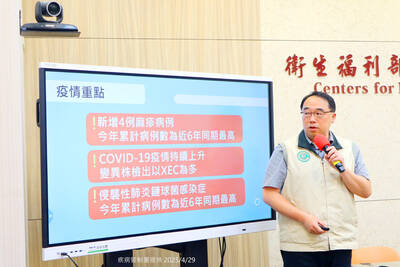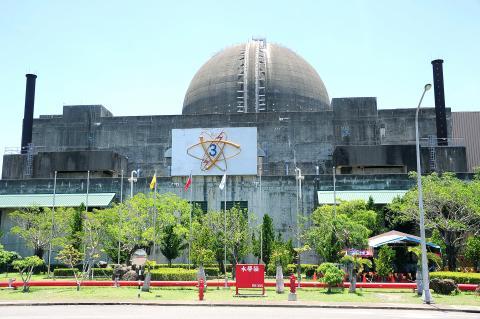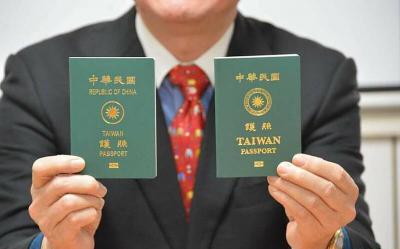Taiwan has again been ranked one of the freest countries in the world by human rights organization Freedom House in its latest annual report, earning a perfect score for political rights.
The nation was given 1.5 points on a sliding scale in which 1 was free and 7 indicated the worst possible oppression in the Freedom in the World report released on Wednesday.
The report evaluated the state of freedom in 195 countries and 15 territories.
Taiwan earned a perfect 1 score for political rights and a 2 for civil liberties.
“Notably, the people of Taiwan, through student protests and local election results during the year, strongly voiced their preference for a future in which popular sovereignty prevails,” the report said.
The Washington-based organization is to publish a detailed report on Taiwan and its democracy in the next few months.
Of the 195 countries surveyed, 89, or 46 percent, were judged to be free, while 55 countries, 28 percent, were said to be partly free and 51, 26 percent, were rated not free.
Thirty-eight percent of the 45 countries and territories surveyed in the Asia-Pacific region were rated as free.
China was near the bottom of the ratings with a 6.5 freedom score — 6 for civil liberties and 7 for political rights.
The report said that during the past year, hardline policies on political freedoms and civil liberties continued in China and harassment of previously tolerated civil organizations, labor leaders, academics and churches intensified.
In Hong Kong, the student-led “Umbrella movement” “epitomized” Beijing’s refusal to countenance the basic tenets of democracy and the ultimate weakness of its legitimacy among the public, Freedom House said.
“It also stood as a powerful reminder that while China’s model of state-driven growth combined with strict political control is attractive to elites in authoritarian settings, ordinary people and especially the young find China’s rejection of freedom profoundly unappealing,” the report said.
More aggressive tactics by authoritarian regimes and an upsurge in terrorist attacks contributed to a “disturbing decline” in global freedom during the last year, it said.
It was the ninth consecutive year in which the organization found an overall decline in freedom.
“Acceptance of democracy as the world’s dominant form of government — and of an international system built on democratic ideals — is under greater threat than at any other point in the last 25 years,” said Arch Puddington, vice president for research at the think tank.
Puddington said that until recently, most authoritarian regimes claimed to respect international agreements and paid lip service to the norms of competitive elections and human rights.
However, now they argue for the superiority of what amounts to one-party rule and seek to throw off the constraints of fundamental diplomatic principles, he said.
Nearly twice as many countries suffered declines in this year’s report as registered gains — 61 to 33 — and the number of countries with improvements hit a nine-year low.

A fugitive in a suspected cosmetic surgery fraud case today returned to Taiwan from Canada, after being wanted for six years. Internet celebrity Su Chen-tuan (蘇陳端), known as Lady Nai Nai (貴婦奈奈), and her former boyfriend, plastic surgeon Paul Huang (黃博健), allegedly defrauded clients and friends of about NT$1 billion (US$30.66 million). Su was put on a wanted list in 2019 when she lived in Toronto, Canada, after failing to respond to subpoenas and arrest warrants from the Taipei District Prosecutors’ Office. Su arrived at Taiwan Taoyuan International Airport at 5am today on an EVA Air flight accompanied by a

COVID-19 infections have climbed for three consecutive weeks and are likely to reach another peak between next month and June, the Centers for Disease Control (CDC) said yesterday. Weekly hospital visits for the disease increased by 19 percent from the previous week, CDC Epidemic Intelligence Center Director Guo Hung-wei (郭宏偉) said. From Tuesday last week to yesterday, 21 cases of severe COVID-19 and seven deaths were confirmed, and from Sept. 1 last year to yesterday, there were 600 cases and 129 deaths, he said. From Oct. 1 last year to yesterday, 95.9 percent of the severe cases and 96.7 percent of the deaths

Restarting the No. 2 reactor at the Ma-anshan Nuclear Power Plant would take up to 18 months, Minister of Economic Affairs J.W. Kuo (郭智輝) said today. Kuo was answering questions during a meeting of the Legislative Yuan’s Economics Committee, where legislators are considering amendments to the Renewable Energy Development Act (再生能源發展條) amid concerns about the consequences of the Pingtung County reactor’s decommissioning scheduled for May 17. Its decommissioning is to mark the end of Taiwan’s nuclear power production. However, Chinese Nationalist Party (KMT) lawmakers have proposed an amendment to the Nuclear Reactor Facilities Regulation Act (核子反應器設施管制法) that would extend the life of existing

The Ministry of Foreign Affairs yesterday demanded that Somalia reverse its decision prohibiting Taiwanese passport holders from entering or transiting through the country. Somalia said it is following the “one China” principle based on UN Resolution 2758. The ministry said that Somalia is misinterpreting the resolution under China’s instigation, creating a false impression that Taiwan is subordinate to China. The Somali Civil Aviation Authority told airlines on Tuesday last week that starting today, any passengers with passports or travel documents issued from Taiwan or its affiliated institutions would not be allowed to enter or transit through Somalia. The decision comes as Taiwan is boosting